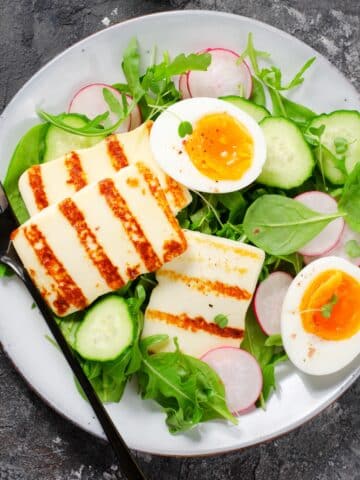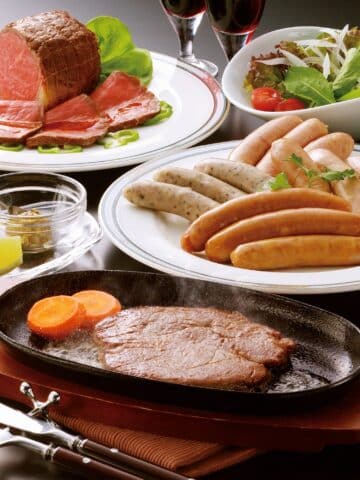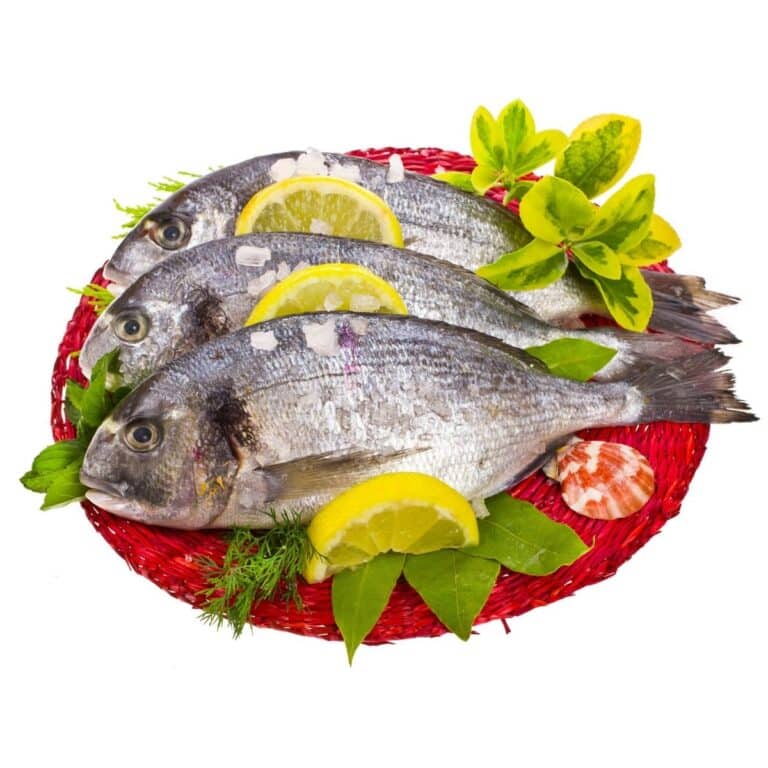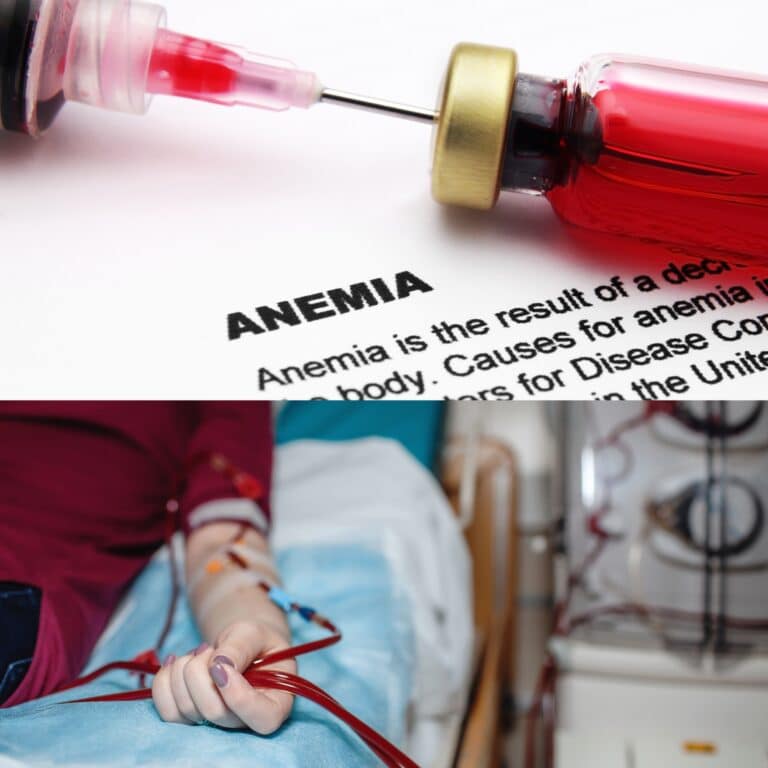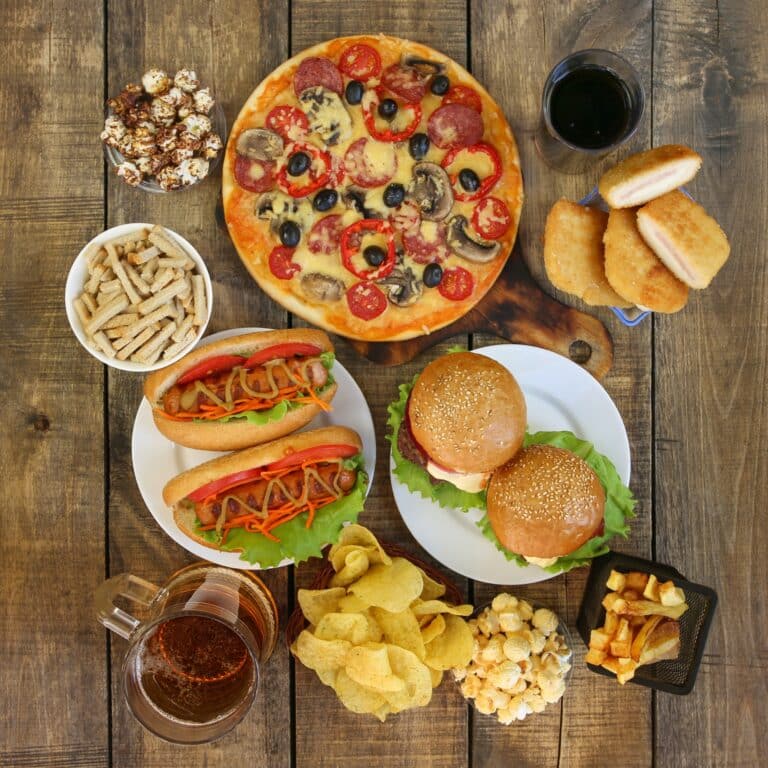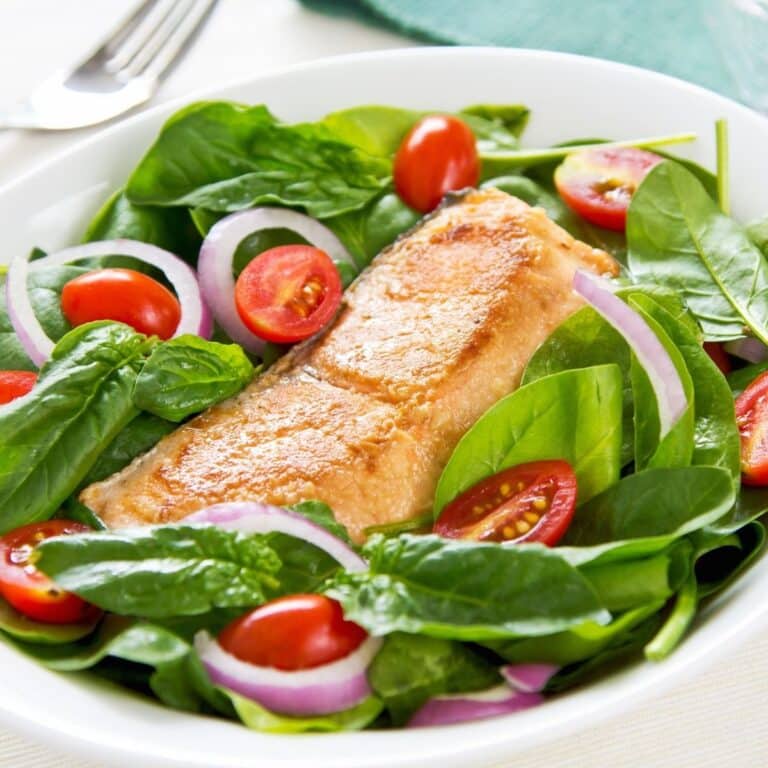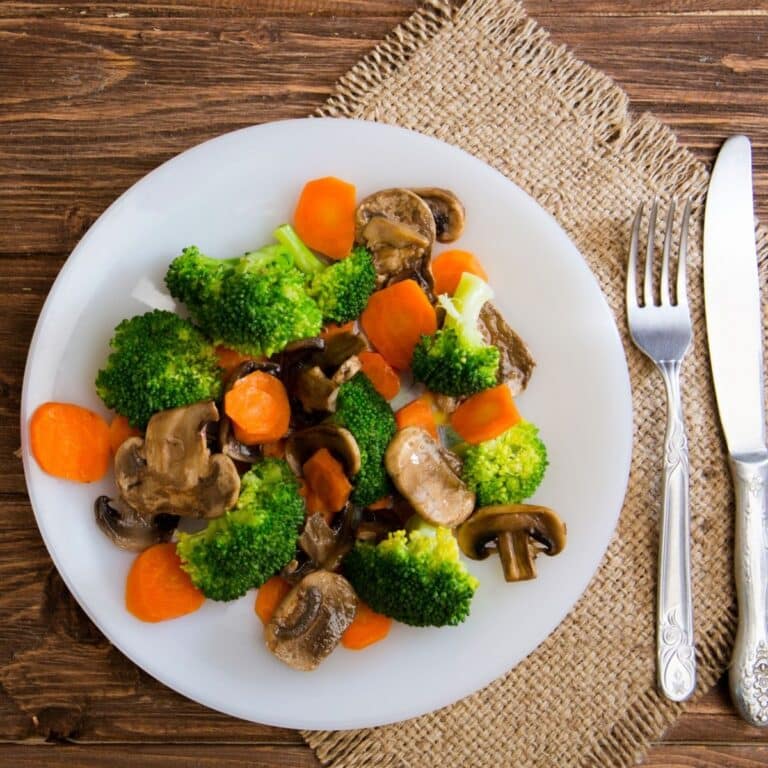Renal Diet Breakfast
Navigating a renal diet can be challenging, especially during the most important meal of the day – breakfast. For people with with kidney disease (chronic kidney disease or CKD) or related conditions, crafting a kidney-friendly breakfast that aligns with dietary restrictions is crucial.
This article delves into the art of designing a nutritious and satisfying renal diet breakfast. From low-potassium and low-phosphorus options to mindful fluid management, we explore strategies to kickstart your day with a balance of essential nutrients while promoting kidney health.
Discover delicious recipes and practical tips to create a morning routine that nourishes your body and supports your renal wellness journey.

Jump to:
- Key Takeaways
- Understanding Breakfast in a Kidney-Friendly Diet
- Tips for Choosing Beverages Suitable for a Renal Diet
- Guidelines for Selecting Kidney-Friendly Foods for Breakfast
- Exploring Satisfying Foods Ideal for a Kidney-Friendly Breakfast
- Kidney Friendly Carbs
- Delicious and Nutritious Recipe Ideas for a Renal Diet Breakfast
- Kidney Friendly Alternatives to Breakfast Staples
- Quick Kidney Friendly Breakfast On The Go
- FAQs for Renal Diet Breakfast
- Start Your Day Right With A Kidney Friendly Breakfast
Key Takeaways
- Starting the day with a healthy breakfast is crucial for a kidney-friendly diet.
- It is important to consult a dietitian for guidance on choosing the right beverages, considering moderation of fluid intake, and checking nutrition labels for added sugars.
- Selecting kidney-friendly foods low in sodium, potassium, and phosphorus is recommended, and avoiding high-sodium and overly processed foods is essential.
- Satisfying options for a kidney-friendly breakfast include whole grain cereals, oatmeal, fresh fruits, plant-based choices, and eggs.

Understanding Breakfast in a Kidney-Friendly Diet
A kidney-friendly breakfast holds immense significance within the realm of a kidney-friendly diet, particularly for individuals managing chronic kidney disease or related conditions. This crucial meal sets the tone for the day, impacting nutrient intake, fluid balance, and overall kidney health.
For renal patients, a renal diet aims to reduce the strain on compromised kidneys while maintaining optimal nutrition. Nutritious morning meals play a pivotal role in achieving these goals.
By selecting types of food low in potassium content, phosphorus, and sodium, individuals can prevent electrolyte imbalances and fluid retention. Incorporating high-quality protein sources, including sources of plant protein supports muscle health without overburdening the kidneys.
Moreover, a balanced renal breakfast aids in managing fluid intake. Avoiding excess water consumption is vital to avoid overloading the kidneys and worsening hypertension. By incorporating hydrating foods like melons, berries, and cucumbers, patients strike a balance between fluid requirements and restrictions.
A kidney-friendly breakfast can also help regulate blood sugar levels, especially for those with diabetes, a common comorbidity in CKD. Complex carbohydrates and lean proteins prevent spikes in blood sugar, promoting overall metabolic stability.
Ultimately, a well-planned renal diet breakfast empowers individuals with a morning boost of energy while safeguarding kidney function.
It exemplifies the synergy between mindful nutrition, fluid management, and overall wellness, providing a foundation for a day of balanced health and adequate energy levels for those on a renal health journey.
For More Recipes and Ideas --->> Get Your Free Meals and Recipes That Are Perfect for Pre-Dialysis Diets, Pre-Dialysis with Diabetes, or Dialysis Diets.
Tips for Choosing Beverages Suitable for a Renal Diet
Selecting appropriate breakfast beverages for a renal diet requires careful consideration to manage fluid intake and support kidney health. Here are valuable tips to guide your choices:
- Opt for Water: Water is the best choice, providing hydration without adding extra nutrients that can burden the kidneys. It's essential for maintaining fluid balance.
- Herbal Teas: Unsweetened herbal teas like chamomile, mint, or hibiscus offer variety without adding extra calories, sugar, or caffeine. They contribute to fluid intake without straining the kidneys.
- Decaffeinated Coffee: If you enjoy coffee, opt for decaffeinated versions for heart health. Regular coffee can increase blood pressure and heart rate due to caffeine's impact on the cardiovascular system.
- Limit Dairy: Dairy-based beverages like milk or yogurt smoothies typically have high potassium and phosphorus levels. Choose lower-potassium dairy alternatives like almond or rice milk.
- Beware of Juice: Fruit juices are often high in potassium and sugars. If you choose juice, opt for small portions of low-potassium options like apple juice and dilute with water.
- Watch for Sodium: Check labels for sodium content. Some commercially available beverages, even those that seem healthy, can contain hidden amounts of sodium.
- Monitor Portion Sizes: Pay attention to portion sizes to avoid exceeding fluid restrictions. A small glass or cup is a good reference point.
- Consult a Dietitian: A registered dietitian specializing in renal nutrition can offer personalized guidance, tailoring beverage choices to your specific dietary needs and fluid restrictions.
Remember, the key is striking a balance between hydration and managing renal health. Being mindful of the nutritional content and portion sizes of your breakfast beverages will help you make choices that best support your kidney function.

Guidelines for Selecting Kidney-Friendly Foods for Breakfast
Selecting kidney-friendly foods for breakfast involves adhering to the core principles of a renal diet to manage chronic kidney disease. Here are guidelines to ensure a wholesome morning meal:
- Controlled Portions: Watch portion sizes to avoid excessive nutrient intake. This is crucial for managing phosphorus, sodium, and potassium restrictions, as well as fluid levels.
- Limit Potassium: Opt for low-potassium fruit options like apples, berries, and peaches. Bananas, oranges, and melons should be consumed in small portions.
- Mind Phosphorus: Choose low-phosphorus dairy or non-dairy alternatives. Eggs, white bread, and some cereals are lower in phosphorus compared to whole grains.
- Choose Lean Proteins: Include lean protein sources like egg whites, low-sodium lean meats, or plant-based options such as tofu.
- Moderate Sodium: Read labels and choose low-sodium options for bread, cereals, and spreads. Minimize processed and canned foods high in sodium.
- Manage Fluid Intake: Opt for hydrating foods like cucumbers, bell peppers, and berries. Be cautious with fluids – control beverage portions to adhere to fluid restrictions.
- Avoid High-Sugar Items: Americans are fond of sweet breakfasts like sugary cereals, pastries, and sweetened yogurt can impact blood sugar levels and overall health. Choose whole grains and unsweetened alternatives.
- Customize: Customize and experiment with breakfast recipes, tailoring them to each individual's nutritional needs vary. Consulting a registered dietitian specializing in renal nutrition ensures tailored guidance aligned with your specific health requirements.
By following these guidelines, individuals with CKD can craft a kidney-friendly breakfast that supports kidney function, manages fluid balance, and maintains overall well-being. Balancing nutritional needs with dietary restrictions paves the way for a satisfying and healthful start to the day.
Exploring Satisfying Foods Ideal for a Kidney-Friendly Breakfast
Let's delve into some delicious and kidney-friendly foods that you can enjoy in the morning. Breakfast is a crucial meal, especially for renal patients, as it sets the stage for meeting your nutrient needs throughout the day. With dietary restrictions in mind, here are some breakfast options that are both satisfying and safe.
| Kidney-Friendly Foods | Why They're Good | Recipe Inspiration |
| Whole grain cereals | Fiber rich foods | Cereal with almond milk |
| Fresh fruits | Low in sodium | Fruit salad |
| Eggs | High-quality protein source | Scrambled eggs |
Whole grain cereals are a great choice because they contain significant grams of fiber per serving and can be easily paired with almond milk—a plant-based beverage option that suits kidney health. Fresh fruit slices of strawberries or berries offer a refreshing start to your day while being mindful of your potassium levels.
And let's not forget about eggs; they're an excellent source of protein which is essential for people with kidney conditions, especially for those that need more protein because of dialysis. We have a delicious arugula frittata that is perfect for a renal diet meal.
Kidney Friendly Carbs
Incorporating kidney-friendly carbohydrate options into your breakfast can contribute to a balanced and nourishing meal. Multi-grain breads and whole grain toasts are excellent choices for a breakfast meal, providing complex carbohydrates and dietary fiber for sustained energy.
Traditional oatmeal, with its soluble fiber, stabilizes blood sugar levels and offers a gradual release of energy. Opt for steel-cut or old-fashioned oats over instant oatmeal, as the latter may contain additives that are less kidney-friendly.
A tablespoon of oats can add texture and nutrition to yogurt or smoothies and other renal diet breakfast recipes. Choosing a bowl of cereal with low potassium and phosphorus content, combined with almond or rice milk, provides a satisfying breakfast while supporting renal health. For a warm and hearty option, consider a rice burrito filled with kidney-friendly ingredients.
Complex carbohydrate choices in your breakfast help maintain a balance of carbs throughout the day, preventing blood sugar spikes and crashes. These carbohydrates provide a gradual release of energy, ensuring steady energy levels.
Balancing daily carbohydrate intake is essential as it serves as fuel for energy production and offers a much-needed boost of energy to kickstart your morning and sustain you through the day.
Delicious and Nutritious Recipe Ideas for a Renal Diet Breakfast
Here are some kidney-friendly breakfast ideas to last you a whole week which you can incorporate in your daily meal plan. This are simple breakfast options that you can whip up even if you are in a hurry.
Day 1: Scrambled Eggs with Bell Peppers
- Scramble egg whites with sautéed mushrooms and bell peppers. Garnish with spring onion.
- Serve with a slice of whole wheat toast and a small portion of sliced apples.
This breakfast is a healthy choice that offers a lot of fiber rich foods.
Day 2: Greek Yogurt Parfait
- Layer low-potassium light yogurt with sliced strawberries and a sprinkle of sunflower seeds.
- Add a drizzle of honey for sweetness.
This is a simple yet nutritious morning meal if you prefer sweet breakfasts over a savory breakfast dish.
Day 3: Oatmeal with Berries
- Prepare traditional oatmeal with water or a low-potassium milk alternative.
- Top with mixed berries and a small amount of chopped walnuts.
Resist the urge to add a tablespoon sugar to sour berries to keep your blood sugar levels normal.
Day 4: Tofu Breakfast Burrito
- Sauté diced tofu in a tablespoon of vegetable oil with zucchini, chopped kale, green onion and kidney-friendly spices like black pepper powder and fresh parsley.
- Wrap in a whole wheat tortilla and top with a tablespoon of salsa. Make sure to use low-sodium salsa to avoid potential health risks.
This is among the renal diet breakfast ideas that are delicious yet nutritionally balanced. This is also a good way of incorporating plant-based proteins in a breakfast meal.
Day 5: Cottage Cheese Pancakes
- Mix cottage cheese with egg whites, a touch of vanilla, and a pinch of baking powder.
- Cook like pancakes and serve with a small amount of sliced pear.
This breakfast meal is a good option for breakfast ideas for dialysis patients who need to maintain a high protein diet.
Day 6: Quinoa and Veggie Bowl
- Cook quinoa and toss in olive oil with fresh vegetables such as carrots, tomato slices, peas, and bell peppers.
- Top with a poached egg and a sprinkle of herbs.
You can try this breakfast meal if you want something light yet colorful, while filling up on your daily needs for insoluble fiber.
Day 7: Berry Smoothie Bowl
- Blend low-potassium fruits like berries and peaches with water or a low-potassium milk alternative.
- Pour into a bowl and top with chopped almonds and a drizzle of honey.
For fans of sweet breakfasts, this smoothie bowl breakfast meal offers tons of health benefits, too due to the essential vitamins these fruits provide.
Remember to consult a registered dietitian for personalized guidance and ensure that not only do you eat delicious meals but also keep up with your diet restrictions.
Kidney Friendly Alternatives to Breakfast Staples
Adhering to a kidney-friendly diet doesn't mean sacrificing taste or variety in your breakfast choices. There are plenty of healthy breakfast options as alternatives to favorite breakfast staples that cater to renal health:
- Eggs for Protein: Eggs are a versatile protein source. Swap whole eggs for egg whites to reduce phosphorus intake while maintaining protein content.
- Low-Potassium Fruits: While high-potassium bananas and oranges might be restricted, opt for low-potassium alternatives like apples, pears, berries, and melons. In this way, you can have healthy meals that also adhere to a low potassium diet.
- Cereal Substitutes: Swap high-potassium cereals for low-potassium options like cornflakes, rice cereals, or oatmeal made with low-potassium milk.
- Whole Grains: Choose whole wheat bread or tortillas instead of refined options. Whole grains are lower in phosphorus and support heart health.
- Lean Proteins: Incorporate lean proteins like tofu, egg whites, and low-sodium lean meats in place of high-potassium bacon or sausages.
- Low-Potassium Dairy Alternatives: Opt for almond milk, rice milk, or coconut milk as low-potassium substitutes for regular milk.
- Nuts and Seeds: Swap high-potassium nuts and seeds with healthy options like sunflower seeds, pine nuts, and pumpkin seeds.
- Herbal Seasoning: Use herbs and spices to add flavor without adding sodium. Ditching high-sodium condiments supports heart and kidney health.
By exploring these alternatives, you can create a kidney-friendly breakfast that is both delicious and nourishing. By using fresh ingredients for your breakfast meal, your diet will help you achieve optimal health outcomes.
Consulting a registered dietitian familiar with renal nutrition ensures your choices align with your dietary restrictions and health goals.
Quick Kidney Friendly Breakfast On The Go
For people with kidney disease with busy mornings, kidney-friendly morning menu on the go can ensure a nutritious start to the day without compromising renal health.
Opt for whole grain toast with a spread of nut butter, such as almond butter. This quick and convenient choice offers a satisfying experience for breakfast, delivering healthy fatty acids, protein, and complex carbohydrates.
Consider preparing a breakfast dish with two tablespoons of cream cheese spread on whole grain toast. Pair it with low-sodium crackers for a balanced and filling meal. Swap high salt foods with low sodium alternatives like low sodium jam or light yogurt to reduce sodium intake.
Instant oatmeal is another portable solution. Look for low-sodium versions to ensure proper nutrition without excessive salt content. These quick oats can be prepared with water or low-potassium milk alternatives for a quick and wholesome breakfast on busy morning hours.
Balancing daily carb intake is crucial for sustained energy levels during morning activities. Embrace options like low-sodium crackers, whole grain toast, and instant oatmeal, which provide complex carbs for essential energy during the morning hours while avoiding high salt and sodium foods. These kidney-friendly choices cater to your on-the-go lifestyle while promoting overall health.
FAQs for Renal Diet Breakfast
Signs that a breakfast food may not be suitable for a renal diet include high potassium and phosphorus content, excessive sodium, and hidden additives.
Look for foods with ingredients like bananas, oranges, dairy products, and processed meats, which are often rich in potassium and phosphorus. High-sodium or processed foods contribute to fluid retention and blood pressure issues.
Check nutrition labels for phosphorus additives like "phos" in the ingredient list. Foods that are typically high in sugar or unhealthy fatty acids should also be avoided, as they can impact overall health. To ensure suitability, consult a registered dietitian specializing in renal nutrition to guide your breakfast choices.
Certain breakfast foods can contribute to the progression of chronic kidney disease (CKD) due to their impact on potassium, phosphorus, sodium, and protein levels. High-potassium foods like bananas and oranges can strain compromised kidneys.
Excess dietary phosphorus from dairy, processed meats, and whole grains can disrupt calcium balance, affecting bone health. Sodium-rich breakfast choices elevate blood pressure and cause fluid retention, worsening kidney function. Protein-rich foods, especially animal sources, can lead to increased waste products that kidneys struggle to eliminate.
To prevent CKD progression, opting for low-potassium, low-phosphorus, low-sodium, and moderate-protein breakfast options is crucial, in consultation with a registered dietitian.
Yes, a renal diet breakfast can aid in weight loss. By focusing on nutrient-dense, low-calorie options, individuals can reduce calorie intake while still receiving essential nutrients.
A kidney-friendly breakfast typically includes lean proteins, whole grains, and low-potassium fruits, promoting satiety and regulating blood sugar. Limiting high-calorie, high-sugar, and high-fat choices often associated with weight gain supports overall health.
Additionally, managing portion sizes and monitoring fluid intake can contribute to weight management. However, it's essential to consult a healthcare professional or registered dietitian before making dietary changes, especially for those with specific health conditions like chronic kidney disease.
For individuals with food allergies following a renal diet, there are still plenty of kidney-friendly breakfast options. Opt for allergen-free proteins like egg whites or dairy-free yogurt.
Choose grains like rice or oats that are less likely to trigger allergies. Substitute low-potassium fruits like berries, apples, or pears for allergenic fruits. Incorporate seeds or nuts that are safe for your allergies to add texture and healthy fats.
For milk alternatives, consider non-allergenic options such as almond milk or rice milk. Always read labels carefully to avoid hidden allergens, and consult a registered dietitian to ensure your breakfast choices align with both your renal and allergy-related dietary needs.
When dining out with kidney-friendly needs, consider options like your morning omelets made with egg whites with veggies, plain traditional oatmeal with low-potassium fruit toppings, yogurt parfaits with fresh fruit, whole wheat toast with avocado, or fresh fruit plates. Avoid high-potassium fruits, processed meats, excessive dairy, salty foods, and sugary pastries.
Opt for grilled or baked choices, request modifications, and communicate your dietary needs to staff. Check menus in advance, prioritize low-sodium options, and ask about ingredients. Customization and awareness are key to choosing suitable options and avoiding items that might impact your renal health adversely while dining out.
Start Your Day Right With A Kidney Friendly Breakfast
A kidney-friendly breakfast is vital for managing CKD, impacting nutrient intake, fluid balance, and overall health. Craft a satisfying meal with controlled portions, low-potassium fruits, lean proteins, and mindful sodium intake.
Opt for water, herbal teas, and decaf coffee while limiting high-sugar drinks and dairy. Explore alternatives like egg whites, whole grains, and low-potassium fruits. Beware of signs that a food may not suit a renal diet, and avoid items that can worsen CKD progression.
Consider a renal breakfast for weight loss by focusing on nutrient-dense options. Dining out requires choosing wisely and customizing orders to support kidney health. Consulting a dietitian ensures a successful renal breakfast approach.

